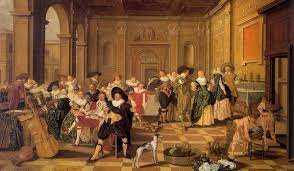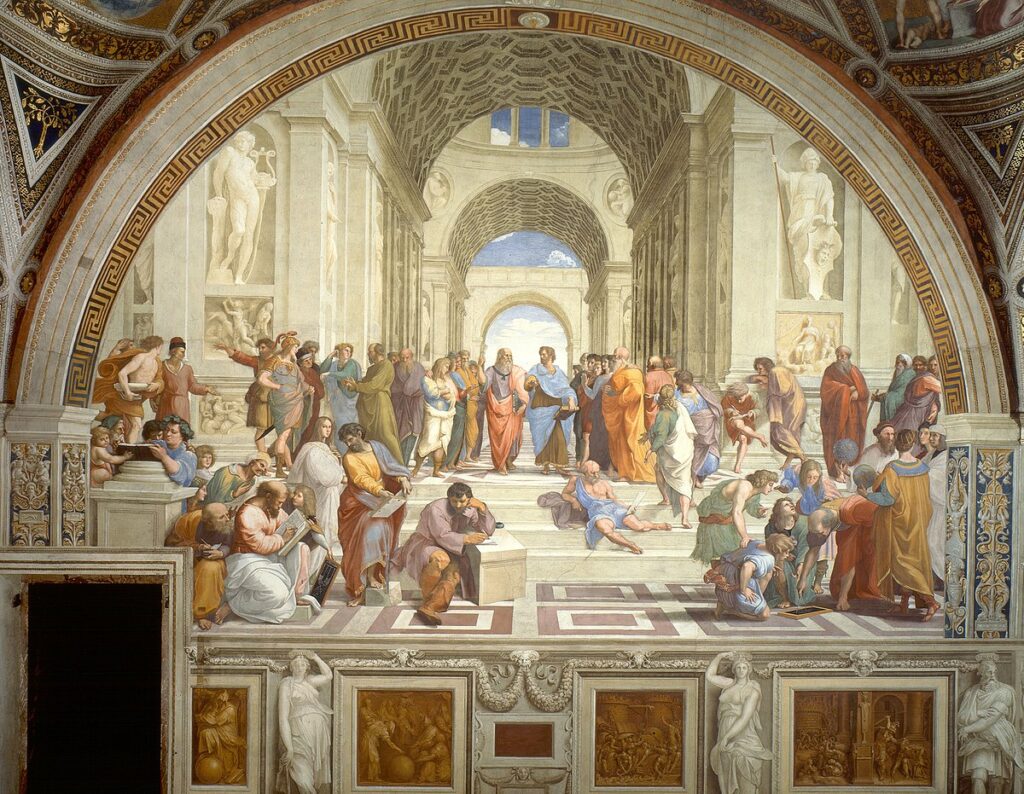Most Important Event in World History:
The Renaissance
— by Savithri Suresh
— Reading Time – 16 Min Approx
With more than two thousand years of rich history behind us, several moments have shaped the world as we know it now. The discovery of fire gave way to a society that has seen development beyond anything imaginable. The Iron and Bronze Age told humanity the importance of using resources in nature for a comfortable living and the invention of paper and the printing press taught us lessons that we still learn today. However, there is one major event that has shaken the foundation of the world we live in – the Renaissance. It is probably the most important event in world history.
The vibrant era known as the European Renaissance can be credited quite a bit with how we perceive the world today. For a lot of people, the Renaissance is all about famous paintings. But in reality, it is more than that. The Renaissance was the beginning of the era of European Exploration, and their supremacy over the world.
The discoveries made by the explorers, the masterpieces written by the writers, and the developments made by scientific thinkers have earned a place as some of the greatest ever done on Earth. Such is the power that the Renaissance has had on the world that even today the age is admired with great awe and has earned a large amount of respect. As we mentioned earlier, the Renaissance has had a profound impact on Europe, waves which are felt even today.
Renaissance – The Definition:
The Renaissance was a period that came right after the aftermath of the Middle Ages. The word ‘Renaissance’ comes from the French word meaning ‘rebirth’. Many historians believe that this event signifies how Europe emerged from the aftermath of the dark ages with a powerful reawakening in culture, science, art, music, as well as technology. This era was a time of beauty in every sense of the term with blossoming ideas and flourishing creativity.
The era has witnessed the discovery of new lands hitherto unknown, thanks to a large number of explorations. There was also a growth in commerce which was never seen before and innovations were made in several fields. These include the invention of paper, the printing press, the compass, and the gunpowder. The invention of these innovative products has had a profound impact on the world today.
For example, the printing press changed the way the world reproduced information, leading to a world where information is now available at the tip of our fingers. Gunpowder has changed the way nations develop weapons to defend themselves. Today, the sheer number of weapons that can be credited to the invention of gunpowder is quite high. As the period of classical learning and wisdom, the renaissance was a period of change after an extended period of stagnation and darkness. The artistic, cultural, scientific, and intellectual pursuit that happened in Europe between the 14th and the 17th centuries has perhaps been one of the greatest periods of human development ever since the rise and fall of the Greeks and the Romans.
Origins of the most important event in world history:
The Renaissance had spread across Europe from its origins in Florence, Italy in the 14th century. From a mere spark that ignited ideas and changes to a mass exodus of cultural thinking, the Renaissance remained true to its ideals of creative thought. Coincidentally, the period also sparked a boom in exploration, trade, diplomacy, and even conflicts. Like the Greeks and Romans who inspired the Renaissance, armed conflicts resulted not just in a change of regime but also in a cultural change.
The Renaissance changed the world in more ways than one. One intellectual thought gave way to another and soon it had a bit of a snowball effect because the sheer amount of advancement that happened during this time is staggering. During the beginning of the movement in the 14th century, Italy was already beginning to witness a cultural change and revolution. Before this wave of optimism, Italy, along with the rest of Europe, was still recovering from the trauma inflicted by the Black Death Pandemic that was as horrifying as the Covid-19 Pandemic which has brought the world to its knees. The pandemic during the 14th century killed more than a million people, killing as many as one-third of the population during the 13th century.
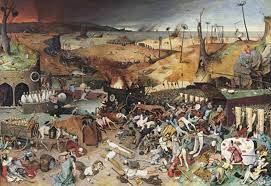
Economically speaking, the death of more than half the population meant that the survivors had more wealth and wages were higher, leading to people ending up with more money than they used to. It was of course in Italy that the Renaissance began. Italy’s aristocracy had a new set of rulers who didn’t mind flaunting their wealth and extravagance, unlike those before them. Prominent among these new aristocrats was the Medici Family of Florence who was inspired by the patronage of artists done by the Greeks and Romans before them during the ancient times.
Several new artists and thinkers thrived under their patronage and it was the spark that led to three centuries of cultural and intellectual pursuit that has changed our world noticeably. During these times, Italy received a lot of lost classics from the ancient world. Artists who were influenced by the aristocracy of Florence such as Leonardo da Vinci, Botticelli, Raphael, Donatello, and Michelangelo took their inspiration from the ancient tales of valor, Gods, heroes, and explorers to create art that is still admired today.
Advancements Made During Renaissance:
One major factor to keep in mind about the art of the Renaissance period is that it did not limit itself to simply being aesthetically pleasing. Rather, it was all about perspective and the birth of a new intellectual discipline where art ga

ve a message rather than just looking good. The newer artists and intellectuals who studied their work gave a great deal of attention to lighting; shadow and even perspective were developed. All in all, the Renaissance was the birth of a new age of realism in art and with it came a desire to capture the beauty of the world without too many embellishments.
The Renaissance was not just the beginning of a new age of art; it was the rediscovering of intellectual ambitions formed during the age of the Greeks and Romans. It was also the beginning of an era where people could push the boundaries of what humanity could achieve. The Renaissance was an age people still take inspiration from in terms of the achievements made by man and the level of creative thinking that rose in all fields of study.
It was not just artists; scientists were also involved in an intellectual pursuit of their own. It was during this time that science developed theories and ideas that have helped shape today’s world. It began with Copernicus and Galileo who came up with a clear-cut understanding of the Earth’s position in the universe by proving that the Earth revolved around the sun and not the other way around. It is during this time that mathematicians had come up with new financial trading systems, thus making world navigation easier than ever.
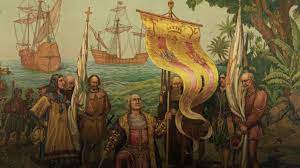
Leading the expedition then would be Christopher Columbus who discovered land that would come to be known as North America in a few centuries. Ferdinand Magellan had also led an expedition around the globe. With the discovery of new continents and a newer understanding of the universe, the world began to grow more than ever. With new lands known, new cultures were also discovered. The Europeans then had set out to discover these cultures leading to the new age of colonization.
Even philosophers and radical thinkers had a place in this new world. Radical thinkers, like Martin Luther and Erasmus, propagated newer ways of looking at the world and encouraged people to be less subservient to the Catholic Church. They encouraged people to consider the potential that the human mind had instead of obeying the laws and ideas put forward by the Church. This was a new age of discovery and never before had art, science and philosophy come together to expand the possibilities of the human mind.
The Renaissance had also led to the development of one of the greatest legacies it would offer – the printing press was introduced to the world by Gutenberg in 1440. The printing press meant that books could be produced in huge numbers and knowledge would be shared with more people. Luther and Erasmus became popular with the publication of their books. Other poets, dramatists, and novelists thrived with books being published at a mass rate. The new age free-thinkers, mathematicians, and scientists had their works published for the benefit of the masses who could now access them. Thus, the printing press and the ongoing Renaissance led to knowledge becoming democratic.
Why Renaissance is the most important event in world history:
We know how the age of Renaissance began but why is it so important a movement even today? The answer lies in the art, literature, political ideas, and scientific thoughts we know and the life we live today. The event of the Renaissance is what led to the rise of brilliant minds like Leonardo da Vinci, Rene Descartes, Galileo, Dante, Milton, Shakespeare, Michelangelo and so many more.
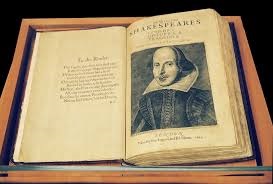
These names are unanimously seen as the greatest thinkers the world has seen today. The ‘Age of Discovery’, as this period is known, led to voyages across the world, with the boundaries of the world becoming smaller due to navigations and explorations. Even people’s thoughts on religion changed. From the blind faith of the previous times, with more people reading, writing, and interpreting ideas, this was a time where religion was critiqued and examined more closely than it ever had been.
The Renaissance had sowed the seeds of the modern world that we see today. Literary geniuses like Shakespeare whose works are studied even today along with breath-taking advancements made by scientists and mathematicians gave the world many theories studied even in the 21st century. The Renaissance changed the world completely for good.
— by Savithri Suresh
